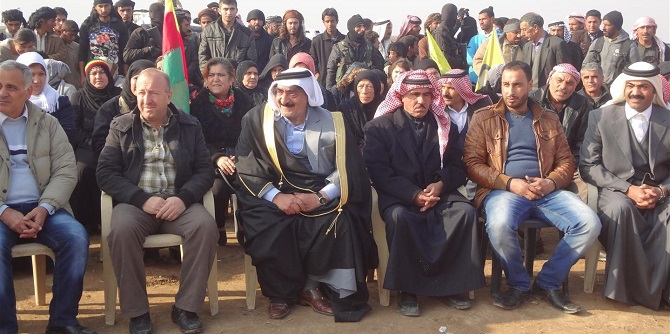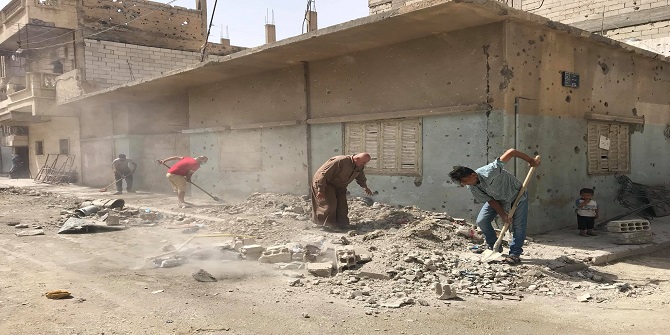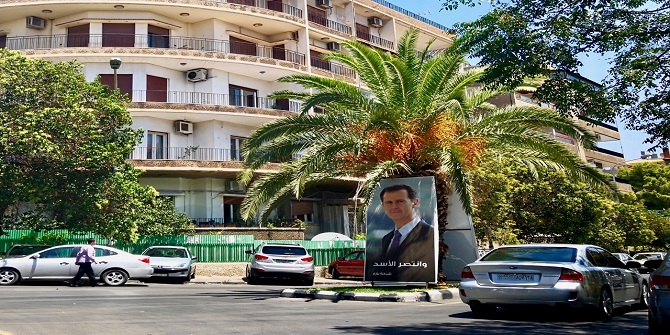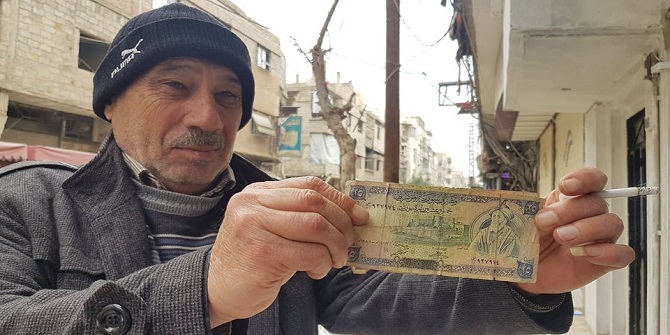(Stuart is a member of the Conflict Research Programme’s Advisory Board).
After 9/11 many western states passed enhanced counter-terrorist legislation leading to the rise of a little known but incredibly powerful organisation called the Financial Action Task Force (FATF). It produced a series of recommendations on how to restrict counter-terror financing. One of the recommendations identified (despite the lack of any real empirical information) the private voluntary sector as especially vulnerable to manipulation by terrorist organisations; potentially established by prescribed individuals, acting as a front for terrorist linked organisations or subject to manipulation in fragile and conflict-affected states. This recommendation caused a ripple effect through national regulatory structures and led to a market restructuring in the financial sector. Many banks looked seriously at the risks that they were facing by working with organisations that could be manipulated by terrorist organisations. Facing increasing fines and the added pressure of working with NGOs, the risk was not worth the potential reward. Fearing regulatory costs and fines, they increasingly limited their business with humanitarian organisations. They did this in two ways. Many banks shed NGO customers, closing their accounts with little warning and no redress. Correspondent banks were also even more rigorous, blocking the movement of money to conflict-affected areas. This is what is now referred to as the de-risking phenomenon.
The humanitarian response to the Syrian crisis has been particularly affected by de-risking in many ways. In particular:
- NGOs’ ability to cooperate with businesses/donors in the USA and Western Europe has been hindered as the financial due diligence required was not seen as worth the potential reward. Many NGOs have had their bank accounts closed and have found it difficult to move money to offices working in conflict states.
- Since correspondent banks, which deal with such transfers, are more vulnerable to fines and costs, they have instituted even more rigorous measures. As result, the transfer of money to conflict-affected regions has become increasingly difficult.
- The humanitarian financial space has been closed down and banks/financial regulators are now having a profound and unprecedented effect, shaping the distribution of humanitarian aid.
Another issue that emerges is how such financial regulations have reframed citizens in the global south not as beneficiaries of assistance or victims of crisis, but as contributors to global risk. Populations that have traditionally fallen outside of western state power have been rendered governable by state institutions in the global north.
But when the policy makers are faced with this, the usual response is “but we have no empirical evidence that the Syrian crisis is affected by bank de-risking”. In response, we started a research project to address the question of whether bank de-risking has affected the NGO community responding to the Syrian crisis. We asked whether there is evidence of a precautionary approach to risk arising from bank de-risking and permeating NGO humanitarian decision-making for the Syrian humanitarian crisis. And if so, is this used to render beneficiaries and/or humanitarian institutions governable? And reflecting the possibility that a precautionary approach to risk undermines organisational responses, does the management of risk lead to improved or reduced humanitarian outcomes and is it possible to identify the ways in which calculations of risk determine humanitarian priorities and coverage?
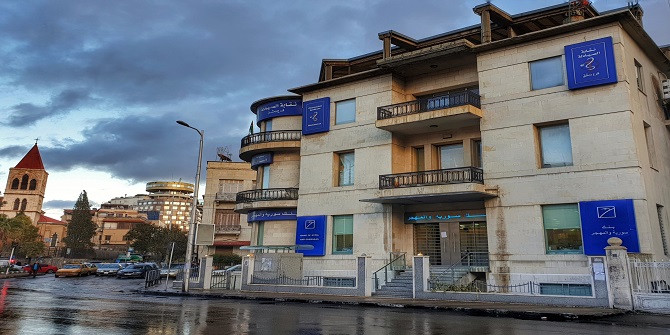
The main results were published in Gordon et al., 20181. The research used mixed methodology, largely qualitative in nature, involving 11 round-tables and a survey with 297 responses. The results of this study showed that the de-risking phenomenon has led to the following main problems:
- Providers of humanitarian aid were under pressure to conform to regulations before responding to crises in certain areas, out of fear of being de-risked or de-banked.
- Almost a third of all money destined for Syria was held in an almost permanent limbo because of blockages in the correspondent banking system.
- The risk of being de-risked creates a ripple effect; the result was the funnelling of humanitarian activity to areas that were most likely to get through donor and bank scrutiny. This meant that areas that were more marginalised and in need found themselves bereft of support. Humanitarians felt they had to identify the areas they responded to in line with regulatory requirements. They had to predict who they were dealing with in terms of logistics chains and partners. Any community that did not have this level of legibility and transparency was too dangerous to engage with, because once banks discovered the engagement, there was a danger that the humanitarian organisation would be de-risked or de-banked.
- In the case of rapid changes such as forced displacement, NGOs found it really hard to respond because of the reporting problems and because of the need to rapidly move money to those areas. They would do this out of their own tight budget.
- It caused a shift from cash response to outdated commodity-based responses, which could itself be manipulated or diverted by combatants.
- Intensifying regulatory measures led to a counter-productive regime.
- The identified risk increases closer to beneficiaries along the humanitarian supply chain. This has left smaller NGOs that are closer to the affected areas more vulnerable to de-risking procedures and therefore more financially drained.
- De-risking led to conservative and unresponsive programming choices. For a winterisation programme, organisations bid for the funding six months in advance and their funding is held up for six months. The programme is then out of date so they shift to something else; they are under pressure to spend the money rapidly and therefore choose something that is conservative and not necessarily the most effective use of money.
Another issue that emerged is how the risk was used by neighbouring states (such as Turkey) as a way of constructing objects capable of being governed and manipulated by the Turkish administration.
The results reaffirmed the fact that contrary to the idea of risk-based management and results-based management, which suggest that everything can be reduced to probabilities and managed accordingly (managerial logic), one of the predictions of risk sociology is that regulatory failure is highly likely to emerge out of efforts to regulate risk. The outcome is that policy makers are equally likely to create regulatory failure as they intensify the regulation of NGO financing as they were to address the problem they were dealing with. Risks in that process, the diversion of money in this case, were substantially higher than before the regulatory process began: an unanticipated repercussion.
In conclusion, donors underestimated the scale of the problem of de-risking large Europe-based NGOs. And while the FATF believed the regulations would lead to more transparency, the results of the de-risking are that 100 per cent of NGOs operating in Syria use cash transfers or the informal hawala system. Syrian NGOs have also become overly dependent on western NGOs, intensifying the sense that the global humanitarian system is an extension of western political institutions.
[1] Gordon, S., Robinson, A., Goulding, H. & Mahyub, R. 2018. The impact of Bank de-risking on the humanitarian response to the Syrian crisis. HPG Working papers.
Note: The CRP blogs gives the views of the author, not the position of the Conflict Research Programme, the London School of Economics and Political Science, or the UK Government.


